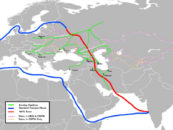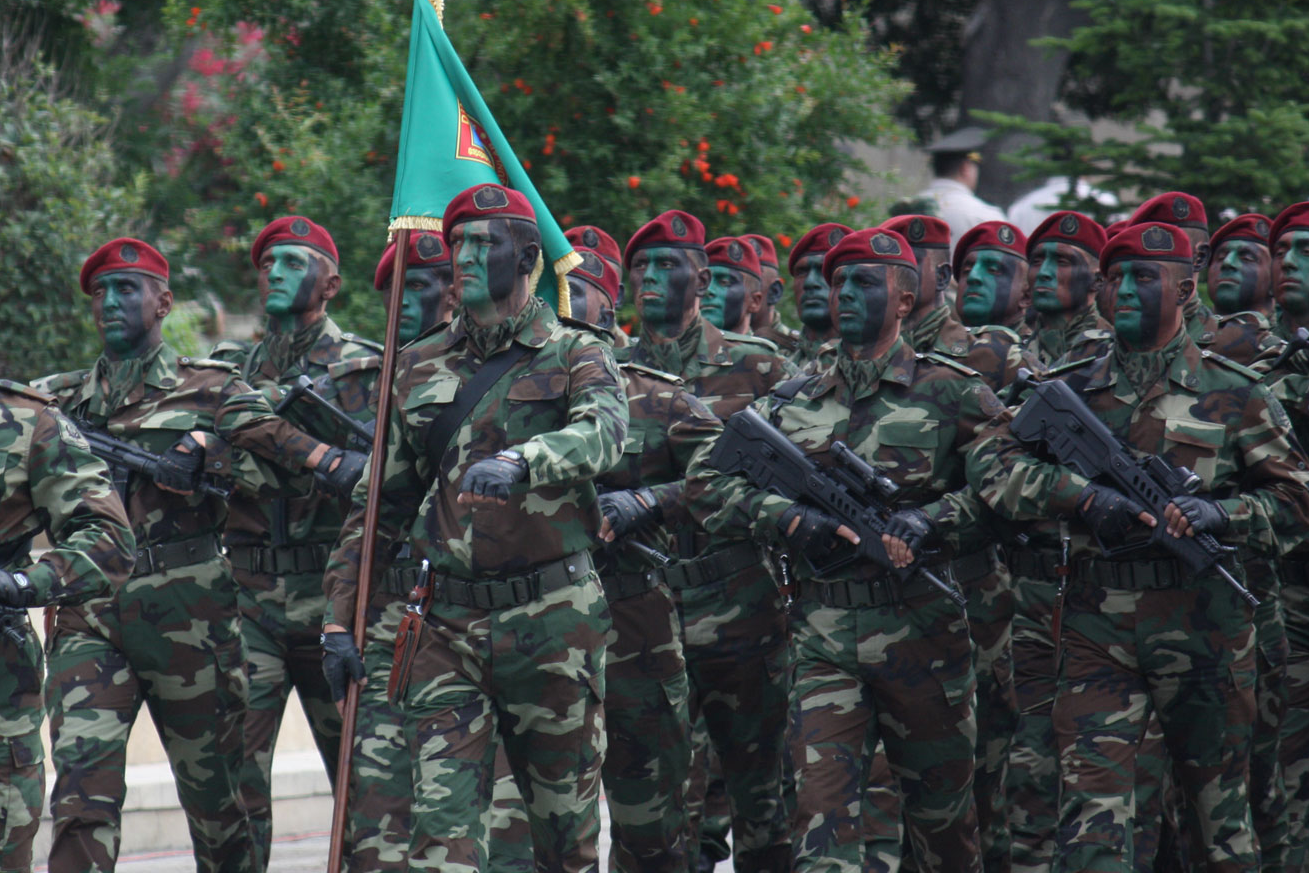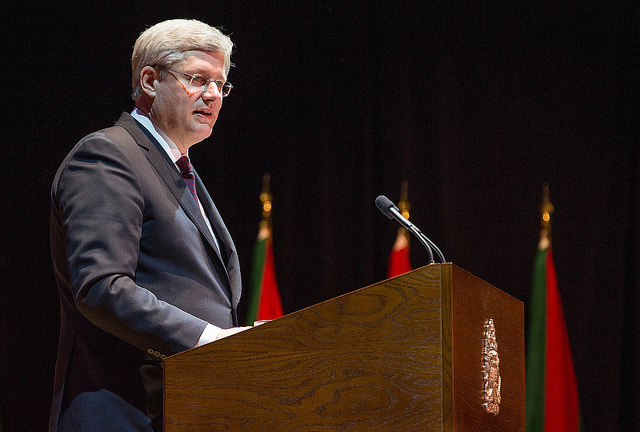Reports of ceasefire violations across the Azerbaijan-Armenian border on May 2, 2016, highlight the increasing degradation of the April 5, 2016 Russian-brokered ceasefire in ceasing the hostilities. Armenia and Azerbaijan both reported that their positions were engaged along the border in the Karabakh region, with the Azerbaijanis reporting 112 violations from Armenia and 114 attacks in response from the Azerbaijani army. The Armenian account was non-definitive, but reported that the Azerbaijanis were first to engage. The escalating conflict in Central Asia highlights an important trend in the region of the increasing isolation of Azerbaijan from economic and security agreements mirrored by the increasing influence of Russia.
The recent April 13 signing of the North South Corridor Energy Accord between Russia, Georgia, Iran, and Armenia marks a notable increase in the regional isolation of Azerbaijan. Georgia and Iran were the last two bordering countries not to be tied by comprehensive regional agreements to Armenia and the Russian Federation. This accord marks the economic integration of a majority of central Asian states through regional and multilateral agreements. The Commonwealth of Independent States Free Trade Area (CISFTA), initiated in 2011, includes Russia, Ukraine, Belarus, Uzbekistan, Moldova, Armenia, Kyrgyzstan and Kazakhstan.
The Ascension of Kyrgystan to the Eurasia Economic Union (EAEU) on August 12, 2015, adds another state to the Russian-led economic union that is additionally comprised of Armenia, Belarus, and Kazakhstan. This increasing economic isolation can easily result in a regional security exclusion, as countries seek to avoid becoming embroiled in a conflict against trade partners. Georgia, which seemed like a promising regional ally, has clearly started to redress previous tensions with Russia, which were at their height during the 2008 conflict, by signing the accord. The December 2, 2015 announcement by NATO that Georgia would not be allowed to skip the Membership Action Plan phase of ascension, heavily lobbied for in Tbilisi, certainly limits Georgia’s options in addressing an ever more influential Russia.
More importantly, this increasing economic integration marks long term indicators for a shift in regional political influence and economic power. It’s no secret that the EU has been struggling to find energy alternatives to address its heavy dependence on Russian natural gas and oil. In 2013, nearly 69.1% of the EU’s natural gas came from Russia, and not a single state in the 28-member union was a net-exporter of energy. The economic sanctions on Russia following the annexation of Crimea represented a somewhat double edged sword, with Russia relying on European imports, but the EU more heavily on Russian energy exports. But the signing of the Energy accord signals the further operationalizing of the North South Transport Corridor (NSTC) which, once fully operational, would significantly reduce transit time for land trade from the east. This provides Russia with a new source of cheap imports while still allowing export to the EU at a premium in comparison.
The NSTC initiative was a joint venture between Iran, India, Russia, and Azerbaijan and effectively connects the Far East to central Asia with a more direct route than in the past. It is not a stretch to think that, due to their geographic adjacency, Armenia could easily substitute for Azerbaijan as the thoroughfare for this massive commercial transport route should the latter prove to be unreceptive to regional pressures. Moreover, this agreement places Iran as a central hub and transit point for increased economic activity and energy provision resulting in a lower reliance for Russia on European markets.
The development of the corridor and its energy capacity shows not only an increasingly integrated region lead by Russia and Iran, but represents a particularly worrisome problem for the EU. Should the energy corridor seek to develop its pipeline potential, the existing BTC pipeline from Azerbaijan to Turkey, connecting the Caspian Sea to the Mediterranean, could see significant competition. An isolated Azerbaijan will have difficulty dealing with the transport of fuel much needed for energy security and diversification in the EU.

Though the EU had been developing alternative partners in energy long before the conflict in Ukraine, since 2003 the four main partners for alternative crude oil included both Azerbaijan and Kazakhstan. This is certainly problematic as one is an economic partner and neighbour of Russia, while the other faces increasing isolation. In terms of natural gas alternatives Qatar and Libya have been growing partners since 2003, but Libya is suffering from prolonged internal instability while energy transport through the Middle East from Qatar is continually threatened by ongoing conflict. The North South Energy Corridor and the NSTC offer access to Iran’s refineries, which represents the potential for a significant shift in power towards non-Western actors in the region as trade and transport become dictated by Russian and Iranian border policies and tariffs. The development of a North South corridor, routed through central and southern Europe and deemed essential for European resilience and energy security by the Atlantic Council of the US and Central Europe Energy Partners (CEEP) in 2014, seems to have already started albeit on the opposite side of the Black Sea.
With reported conflicts between Armenia and Azerbaijan increasing, economic isolation means fewer friends in the region and a more powerful Russia, for both Eurasia and Europe, to contend with should larger conflict break out.
Photo courtesy of WalkerBaku (Wikicommons)




